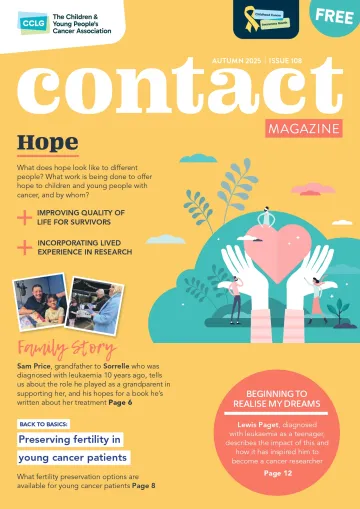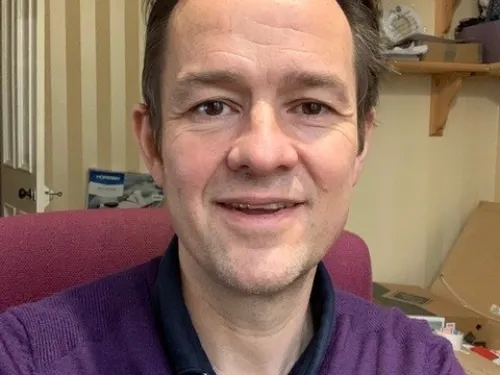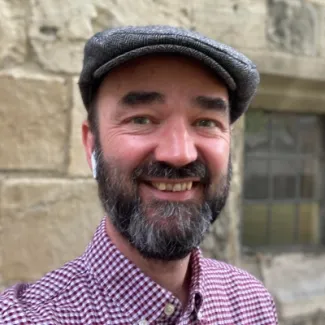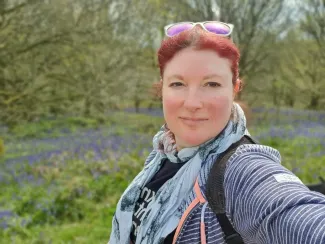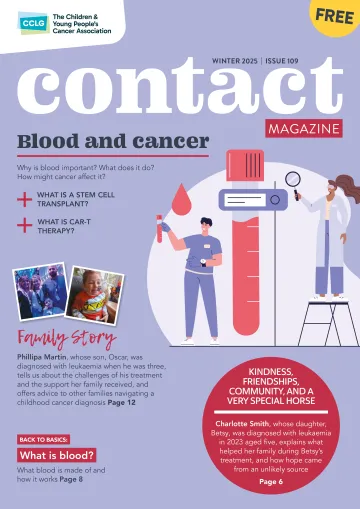When CCLG (then known as the UK Childhood Cancer Studies Group) was founded back in 1977, the goal of its members was simple: to make things better for children with cancer. At the time, fewer than three in 10 children survived their diagnosis, and there was very little research happening in childhood cancer. So, a group of professionals came together to launch clinical trials, collect vital data, and create a supportive community to drive change.
Fast forward to today, and thanks to decades of research around the world, more than 80% of children now survive cancer. But there's much more still to be done – I want everyone to not only survive but thrive after their cancer. Children and young people deserve a life free from the long-term effects of treatment that are still all too common. That’s why funding research is so important to us.
Earlier this year, we changed our name to CCLG: The Children & Young People’s Cancer Association. It’s a name that better reflects our commitment to teenagers and young adults as well as younger children. That change gave us the chance to pause and reflect on what really matters to us as a charity – which led to our innovative new research strategy.
Our new research strategy
We know that making meaningful progress in children and young people’s cancer research isn’t only about handing out grants. So, this strategy isn’t just about what we fund – it’s about how we support the whole research community to work better together, listen more closely to lived experience, and drive lasting change. We have focused on developing four key areas to ensure everything we do contributes to a brighter future for children and young people with cancer...
1. A coordinated, collaborative approach to children and young people’s cancer research
We believe no single charity, hospital or research institute has all the answers. By leading coordination efforts and working together, we’ll ensure that the right research priorities are identified, the highest quality research is funded, and no resources are wasted.
2. Funding the best research, led by the best minds
We’re committed to funding research that drives meaningful progress in the treatment, care, experience and outcomes for children and young people with cancer. By focusing on the areas where we can have the biggest impact, we’ll ensure every pound we spend works harder for our community.
3. Lived experience is at the heart of children and young people’s cancer research
The voices of those with lived experience (those who have had cancer as a child or young person, and their families) are essential to driving children and young people’s cancer research that truly makes a difference. By placing lived experience at the heart of everything we do, we ensure our research addresses real-world priorities, delivers meaningful outcomes, and empowers researchers and families.
4. A thriving children and young people’s cancer research community
Research is a continuous, long-term process, where incremental advancements over time lead to transformative outcomes. To sustain this, we need a research community that attracts talent, nurtures growth, provides opportunities for a wide range of people to get involved, and ensures researchers can thrive.
How this all will help
With CCLG acting not just as a funder of research, but building collaborations and championing this field, we aim to drive bigger, bolder and faster change. That means helping researchers develop their ideas, giving them the support they need to grow, and making sure research is more joined-up, inclusive and impactful than ever before.
We want a future where every one of the top research priorities – identified by patients, families and professionals through the James Lind Alliance – has been addressed. Where every child or young person not only receives the best treatment, but also has a better experience of care. This strategy is a step towards that future.
From Contact magazine issue 108 | Autumn 2025

